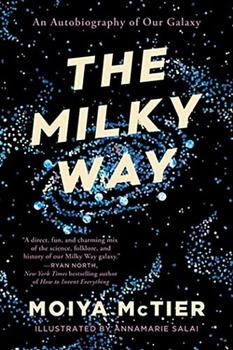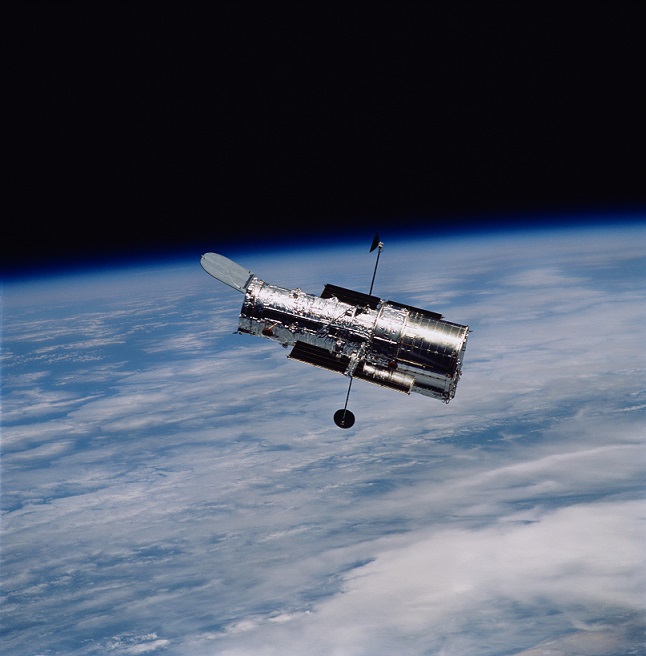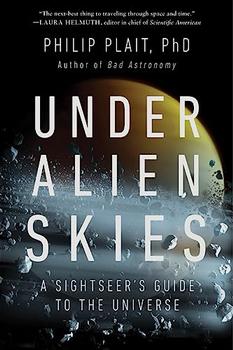Summary | Excerpt | Reviews | Beyond the book | Read-Alikes | Genres & Themes | Author Bio

An Autobiography of Our Galaxy
by Moiya McTierAstrophysicist and folklorist Dr. Moiya McTier channels the Milky Way in this approachable and utterly fascinating autobiography of the titular galaxy, detailing what humans have discovered about everything from its formation to its eventual death, and what more there is to learn about this galaxy we call home.
After a few billion years of bearing witness to life on Earth, of watching one hundred billion humans go about their day-to-day lives, of feeling unbelievably lonely, and of hearing its own story told by others, the Milky Way would like a chance to speak for itself. All one hundred billion stars and fifty undecillion tons of gas of it.
It all began some thirteen billion years ago, when clouds of gas scattered through the universe's primordial plasma just could not keep their metaphorical hands off each other. They succumbed to their gravitational attraction, and the galaxy we know as the Milky Way was born. Since then, the galaxy has watched as dark energy pushed away its first friends, as humans mythologized its name and purpose, and as galactic archaeologists have worked to determine its true age (rude). The Milky Way has absorbed supermassive (an actual technical term) black holes, made enemies of a few galactic neighbors, and mourned the deaths of countless stars. Our home galaxy has even fallen in love.
After all this time, the Milky Way finally feels that it's amassed enough experience for the juicy tell-all we've all been waiting for. Its fascinating autobiography recounts the history and future of the universe in accessible but scientific detail, presenting a summary of human astronomical knowledge thus far that is unquestionably out of this world.
Along with giving information, the author often falls into passages of pure poetry. "As long as particles can move around and interact, nothing in space can truly die," she writes. Elsewhere, the galaxy muses "I am space; I am made of space; and I am surrounded by space," lending romance to a description of the galaxy's vastness. McTier is a folklorist and science educator as well as an astrophysicist, and this book gives her the chance to blend the three. Some of my favorite parts were the references to cultural myths, taking readers on a tour through the Milky Way's other names around the world, like Silver River, Way of Birds, Straw Thief's Way and Deer Jump...continued
Full Review
(762 words)
This review is available to non-members for a limited time. For full access,
become a member today.
(Reviewed by Erin Lyndal Martin).
 In The Milky Way: An Autobiography of Our Galaxy, Moiya McTier references the discoveries made by the Hubble telescope. NASA refers to the Hubble as "the most famous telescope," and the reasons are easy to see. For over 30 years, it has provided insights and never-before-seen imagery — and it's still evolving.
In The Milky Way: An Autobiography of Our Galaxy, Moiya McTier references the discoveries made by the Hubble telescope. NASA refers to the Hubble as "the most famous telescope," and the reasons are easy to see. For over 30 years, it has provided insights and never-before-seen imagery — and it's still evolving.
The telescope is named for Edwin Hubble, a groundbreaking American astronomer born just before the 20th century. Like the telescope that bears his name, Hubble had the mind and creativity to see what had been unknown. Namely, he proved that there are galaxies beyond the Milky Way and postulated that the universe expands at a constant rate.
The Hubble's origins go back to a 1943 paper by theoretical physicist Lyman ...
This "beyond the book" feature is available to non-members for a limited time. Join today for full access.

If you liked The Milky Way, try these:

by Samantha Harvey
Published 2024
A slender novel of epic power, Orbital deftly snapshots one day in the lives of six women and men hurtling through space - not towards the moon or the vast unknown, but around our planet.

by Philip Plait
Published 2024
A rip-roaring tour of the cosmos with the Bad Astronomer, bringing you up close and personal with the universe like never before.
Don't join the book burners. Don't think you are going to conceal faults by concealing evidence that they ever ...
Click Here to find out who said this, as well as discovering other famous literary quotes!